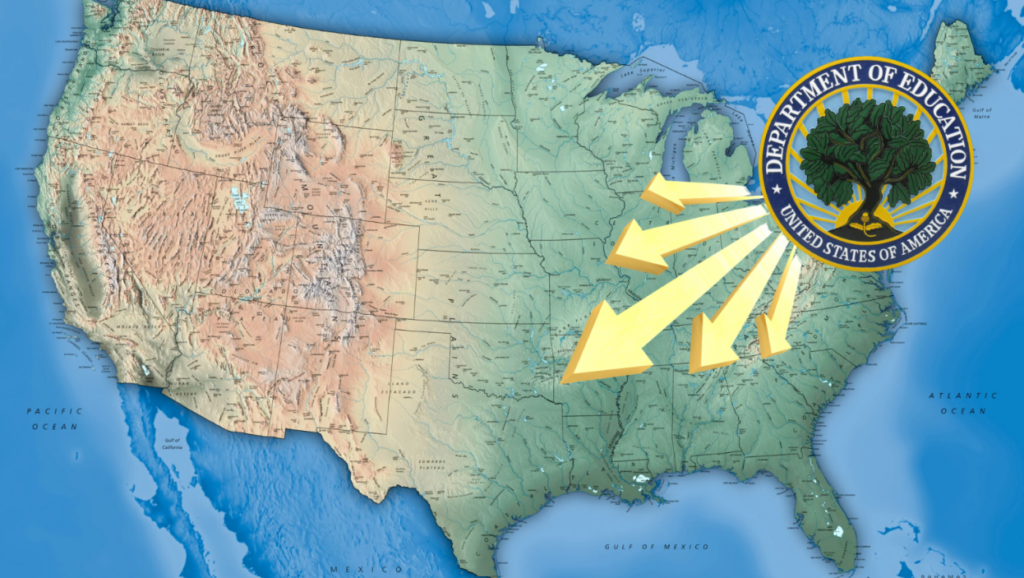
The Liberty Sentinel | Alex Newman | December 6, 2024
Navigating Educational Reforms in the Trump Era
In the wake of Donald Trump’s historic electoral comeback, a spotlight has been cast on education policy and potential reforms, sparking lively discussions across the nation. Amidst these developments, Alex Newman of the Liberty Report engaged Robert Bortins, CEO of Classical Conversations, in a thoughtful exchange regarding Trump’s proposals, school choice, and abolishing the Department of Education. Bortins, a key figure in the world’s largest homeschooling community, offered a compelling perspective on policies that could reshape the educational landscape.
Decentralizing Education: A Conservative Vision
With Trump’s win, questions linger about the future of federal involvement in education. “Trump’s victory is definitely going to put more power into the hands of the states and in the hands of the parents,” asserted Bortins, emphasizing a shift away from centralized governance. The potential abolition of the Department of Education looms large in these discussions, with Bortins pointing out the department’s historical lack of impact on any positive educational outcomes.
“There’s a sense that ending the Department of Education would put us on the path to fixing a lot of problems,” noted Newman. However, Bortins highlighted the complexities involved, especially in balancing financial resources across states. He predicted an ongoing debate: “Once we abolish the Department of Education, then we need…to almost then go to the states just like we’re doing with abortion and abolish [government] education or at least limit the state’s power of education and give it back to the counties…and stop the centralization.”
The Role of School Choice and the Swedish Cautionary Tale
As educational choice gains traction, Bortins expressed reservations about government-funded school choice programs. “I think a lot of Christian educators are speaking out against it now when they see the strings that are being attached,” Bortins warned. This skepticism extends to the notion that government money comes with control—an experience vividly illustrated in Sweden, where initial school choice laws gave way to stringent governmental mandates over time. “They lost their freedom in one generation,” recalled Bortins.
Echoing these concerns, Newman warned of similar dangers in the U.S. “It’s terribly ironic that under the guise of ‘school choice,’ they actually eliminated school choice,” he observed. Both men emphasized the need for vigilance to avoid ensnaring non-government education in a cycle of dependency.
Integrating Tradition with Technology: The AI Angle
In the realm of pedagogy, the merging of classical education principles with new technological tools, like artificial intelligence (AI), is beginning to emerge. Robert Bortins, who leads an organization dedicated to classical Christian education, weighed in on this transition. “With AI, like any tool, if it’s used properly, it could be a benefit,” Bortins suggested. However, he cautioned against over-reliance on screens, particularly for children’s learning.
Forecasting a more integrated future, he noted, “I could see in, you know, 10 years, 20 years, your two-year-old is sitting at home with an AI robot who’s watching them while you go to work…It’s going to take a lot of wisdom.”
Cultivating a Renewed Focus on Education
As the Liberty Report concluded, Newman reiterated the paramount importance of education in shaping the future. Observing the role of Classical Conversations in advancing educational excellence, he praised the program for revitalizing traditional learning methods.
Bortins’ Classical Conversations, relying on time-tested educational practices accentuated by modern pedagogical insights, presents an opportunity for families to reclaim their role in education. “We form communities that meet once a week with a trained parent tutor,” explained Bortins, highlighting the support structure that has proven vital for homeschooling success around the world.
Navigating these reforms will require persistence, foresight, and community collaboration. By fostering independent education systems like homeschooling and private schooling that emphasize choice and community, advocates continue to challenge the norm and while promoting decentralization of education out of the hands of the state.
